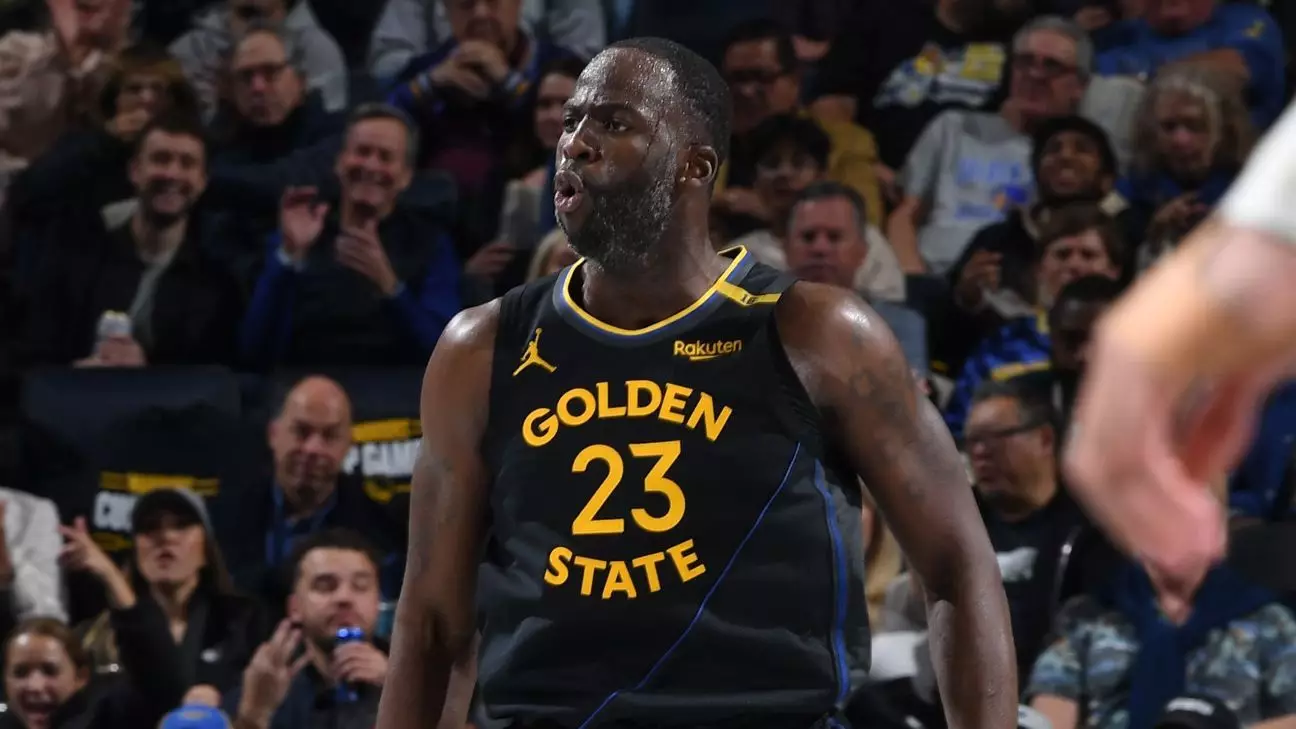The NBA landscape has its fair share of drama, but few incidents have echoed through the league as much as the altercation between Golden State Warriors star Draymond Green and former teammate Jordan Poole. More than two years after the infamous punch that fractured team dynamics, Green recently expressed a desire to move beyond the incident while reflecting on the challenges that followed. This article delves into Green’s journey of accountability, the surrounding controversies, and the broader implications for both players and the Warriors organization.
Revisiting the Incident: A Punch That Shook a Team
The altercation that ignited this saga occurred during a preseason practice in October 2022 when emotions flared, leading to a physical confrontation between Green and Poole. A leaked video showcased Green’s swift approach toward Poole, followed by a punch that resulted in significant tensions within the Warriors’ locker room. This moment was not just a physical altercation; it symbolized deeper issues within the team dynamics as they transitioned from defending champions to struggling contenders.
Green’s subsequent apology was emblematic of his recognition of the gravity of the situation. He shared his remorse publicly, acknowledging the fallout that the punch caused and the subsequent disappointment that resonated throughout the organization. However, his latest comments suggest a sentiment that the narrative should shift from sympathy-seeking to healing and progress.
In a recent episode of “The Draymond Green Show,” Green attempted to navigate the complexities surrounding his actions and the repercussions. His acknowledgment of wrongdoing was evident, yet he also seemed to wrestle with the context of the altercation. Green remarked, “I know I was wrong, but you can’t call a man a B-word and push him and not get hit, either.” This statement illustrates a disruptive duality—accepting fault while also deflecting some accountability back onto Poole.
This duality raises an essential conversation in sports about the nature of accountability and reconciliation. While it’s critical for athletes to own their actions, it is equally important to understand the dynamics that lead to such confrontations in high-pressure environments. Green’s reflections underscore the need for a balanced discussion that addresses not just the consequences of actions but the triggers that precipitate them.
Following the fallout of the Green-Poole incident, the Warriors faced additional challenges that tested their resilience as a unit. Green himself found trouble again, leading to suspensions for subsequent physical altercations in the league. This cycle of controversy prompted a period of introspection for Green, who acknowledged receiving counseling and regular check-ins with league officials. He highlighted how these experiences have positively shaped his character and approach to handling conflicts.
Green’s proactive steps—such as attending therapy sessions and engaging with sports psychologists—illustrate a commitment to personal growth. He has openly shared that these changes have made him a more self-aware player, bolstered by the desire for transformation that many can admire. As Green stated, “I want people to say, ‘Man, right here was a little bleak. But then look where it went from there. And that’s due to because he took accountability.’”
The Warriors’ performance in the wake of the Green-Poole fallout and subsequent incidents has wide-reaching implications for the franchise. Team chemistry is paramount in professional sports, and fractures within a team can lead to decline in performance over time. Both Green and Poole’s narratives highlight the delicate nature of relationships in high-stakes environments, particularly when personal egos and competitive spirits clash.
Green has made it clear that he believes in the importance of moving forward rather than dwelling on past mistakes. His call for closure demonstrates an understanding that while episodes of conflict can be instructive, they should not define a player’s legacy. This approach calls for athletes not only to grow individually but to foster an atmosphere of forgiveness and teamwork.
As Draymond Green navigates his way through the ever-evolving narrative of his career, his recent apologies and reflections serve as a reminder that accountability is essential for personal and professional development. NBA fans and aspiring athletes alike can take valuable lessons from Green’s journey—balancing the weight of one’s mistakes with the resolve to pursue growth.
With the season underway and new challenges on the horizon, both Green and Poole have the opportunity to redefine themselves in the eyes of their teammates, fans, and the league. It’s not merely about acknowledgment but creating paths for enhancing relationships, fostering trust, and, ultimately, leading both players back to successful careers on and off the court.


Leave a Reply